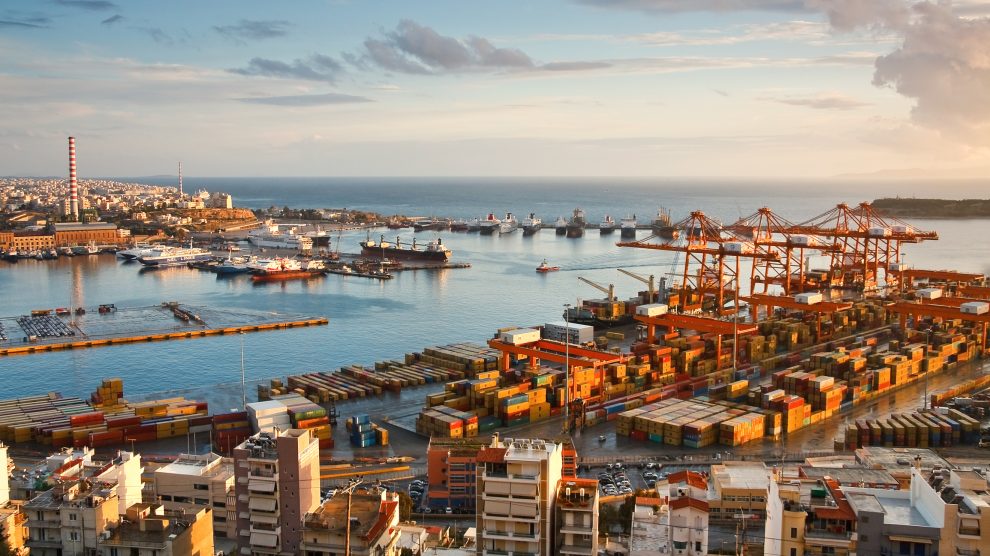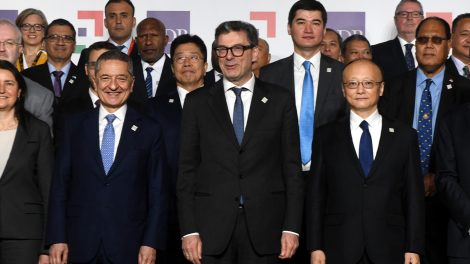The Greek Court of Audit greenlit it, leaving only Athens’ Parliament to go; the vote is expected by mid-September. Then Cosco Shipping, the maritime logistics behemoth controlled by the State Council (the highest administrative body of the People’s Republic of China) will have consolidated its control over the Greek seaport of Piraeus, the fourth busiest in Europe and a strategic asset for the maritime New Silk Road.
This is only the latest instalment in Cosco’s effort to increase its power over European transport infrastructures. In 2019 the company acquired – through OceanRail Logistics – the majority of Pearl (Piraeus Europe Asia Rail Logistics), a Greek railway company that connects the Mediterranean seaport to North Macedonia, Serbia, Hungary, Slovakia, the Czech Republic, Austria, Bulgaria and Romania.
Recently, the Greek Court of Audit approved the sale of a 16% stake in the seaport Authority of Piraeus to Cosco Shipping, whose shares will thus increase from 51% to 67%. In addition, the Court also approved a five-year extension requested by the Chinese company to complete the investments it had committed to.
As Kathimerini reports, the deadline was set for the end of August – that is, within five years of its purchase of 51% of the Piraeus seaport Authority for €293.7 million in 2016. The sale of an additional 16% was also agreed back then, together with the entrustment of a €88 million deposit as guarantee.
However, the Chinese company did not complete the investment program that had been agreed upon, amounting to €300 million. It stopped at less than half, that is, €140 million. The Court of Audit found that Cosco was not responsible for the delays, which were partly linked to legal disputes, including an appeal by a committee of citizens concerned about the environmental implications of a cruise terminal.
The new agreement requires Cosco to guarantee 33% of the amount of the outstanding investments. Furthermore, the Greek State gets a veto on strategic decisions, but it drops from three to one member (out of eleven) on the board of directors of the seaport Authority of Piraeus.
As China is world leader in naval transport, and with 60% of the world’s trade taking place by sea, the Greek seaport is “the head of the Dragon.” According to statistics from Athens, the value of imports from China has gone from €2.89 billions in 2016 (the year Beijing acquired 51% of the portual hub) to €3.74 billion in 2020.
Furthermore, according to the numbers provided by Eurostat, Piraeus was the fourth busiest seaport in Europe in 2019, leaping two positions compared to the previous year. The podium remains unchanged: Rotterdam (Netherlands) in first place, Antwerp (Belgium) in second and Hamburg (Germany) in third. Piraeus is first among the seaports in the South, followed by the Spanish one in Valencia. The first Italian seaport, Gioia Tauro, sits at the eleventh position.
Essentially, Cosco participates in all five main European seaports. It’s in Rotterdam with 35% of Euromax Terminal and with Burg Industries, acquired by China International Marine Containers, which in turn is owned by Cosco together with another state group, China Merchants Group. The latter has recently invested in Italy for the creation of a naval engineering hub, by establishing a cooperation with the University of Bologna.
The Chinese shipping company is in Antwerp, too, through 100% of APM Terminals Zeebrugge and in Hamburg with Yuantong Marine Service, active in the field of marine technology (and is in talks with Hamburger Hafen und Logistik AG to acquire a minority stake in Container Terminal Tollerort). Finally, it’s in Piraeus, as mentioned above, and in Valencia with 51% of the company formerly known as Noatum Ports.
In the case of Antwerp, Cosco acquired shares from the Danish company Maersk. The same goes with the Italian terminal of Vado Ligure (in which the Chinese giant holds a 40% stake) and that of the Suez canal (20%).
According to Datenna, a Dutch economic intelligence company specializing in China, the Maersk terminal company APM Terminals holds 20% of the shares in Qingdao seaport Dongjiakou General Terminal Co., Ltd., in which it has invested approximately €15.6 millions. This company controls the “general terminal” in the seaport of Tsingtao, one of the strategic hubs of Chinese trade. The remaining 80% of the capital is held by Qingdao Port International Co., Ltd., a group that controls the Tsingtao seaport and is partially owned by Cosco, both directly and indirectly.
In the past months, Cosco’s appetites for Italy and Hamburg had raised some alarms – partly because Hamburger Hafen und Logistik AG became a controlling shareholder of the Trieste Logistical Platform at the beginning of this year. Notwithstanding the fact that the memorandum signed in 2019 between the Adriatic seaport authority and the Chinese China Communications Costruction Company – on the sidelines of the Italy-China agreement on the New Silk Road – never took off.
Recently the Italian Parliament’s intelligence watchdog (COPASIR) has been very active on this front. The Turkish company Yilport, which controls Taranto’s container terminal through San Cataldo Container Terminal spa, in October denied any involvement with Cosco, even after the Italian press revealed the existence of a report from Aise, Italy’s foreign intelligence service, detailing the opposite.
Also, Cosco had its eyes set on Genoa for a long time. China Communications Construction Company – one of the great contractors of the New Silk Road and under US sanctions since last November – has shares there.
General Giuseppe Arbore, head of the Operations Department at the General Command of Italy’s Financial Police, recently explained to Il Sole 24 Ore that “the Chinese strategy appears to be aimed at obtaining control – or at least a significant presence – in the management of seaports where goods arrive.”
COPASIR’s concerns are also shared by the United States. A few days before the G7 summit in June – when the US president Joe Biden launched the Western alternative to the Silk Road – Robert Needham, US Consul in Milan, was interviewed by Il Secolo XIX. He answered a question about the seaports of Genoa and Trieste, both strategic for Beijing’s project, underscoring how those are “key for the economic relations” between Italy and the United States. Then he added: “as NATO allies, with troops in Italian bases and with shared security and weapons systems, we hope that Italy will carefully evaluate the potential economic and security risks in the search for partners for the development projects of its seaports.”
Joe Biden’s United States has not changed its (hard) line on China with respect to the former administration, Donald Trump’s. And as recently reported by Formiche.net, in order to counter China’s growing economic influence in Europe, the United States decided to invest where the Silk Road tries to conquer strategic infrastructures. For instance, the Greek shipyards in Eleusis are about to come back to life thanks to the funds allocated by Washington, which aims to modernise it as a “counterpoint” to the seaport of Piraeus.




